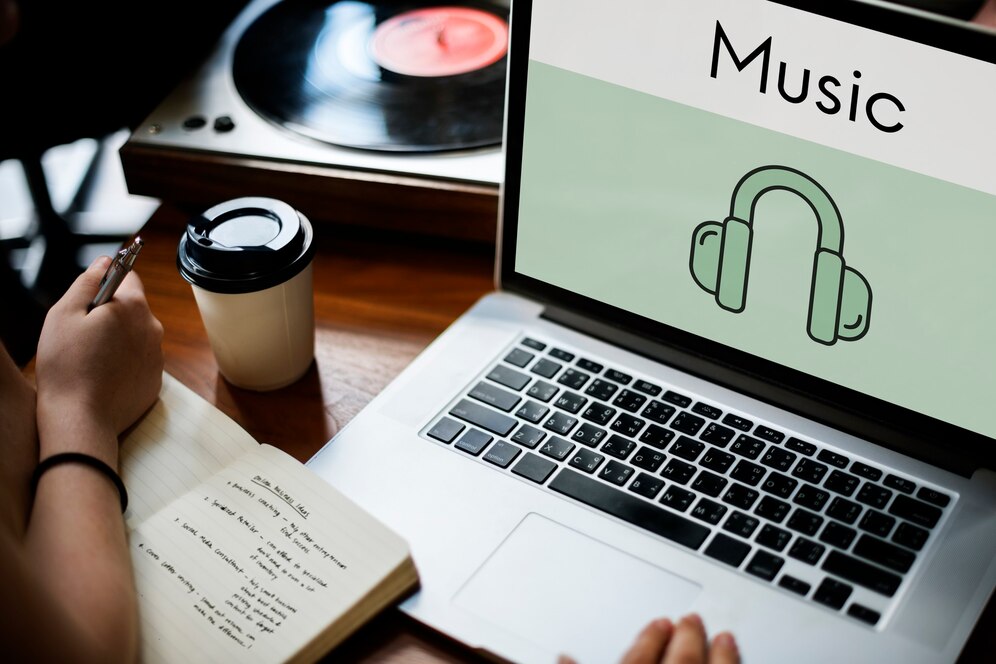
Imagine this: You’ve just poured your heart into a song. It’s 3 a.m., your guitar’s still humming, and the lyrics you scribbled on a napkin feel like they could change the world—or at least your world. You hit record, upload it to SoundCloud, and suddenly, it’s out there, raw and real. But then a nagging thought creeps in: What if someone steals it? That fear is every musician’s quiet nightmare. I’ve been there—back when I was strumming chords in my basement, dreaming of gigs, and wondering how to keep my music mine. That’s when I dove headfirst into the wild, sometimes confusing, but totally empowering world of copyrighting music.
In this guide, I’m going to walk you through everything you need to know about how to copyright your music. We’ll cover the why, the how, and the “oh, I didn’t think of that” moments, with stories, expert tips, and actionable steps you can take today. Whether you’re a bedroom producer, a touring artist, or just someone who loves jamming with friends, this is your roadmap to protecting your creative soul. Let’s get started.
Why Copyrighting Your Music Matters (More Than You Think)
Picture this: It’s 1965, and a young Bob Dylan is scribbling “Like a Rolling Stone” in a notebook. He didn’t have to worry about TikTok remixes or AI bots ripping off his riffs, but he still had to protect his work. Fast forward to today, and the stakes are higher. With platforms like Spotify, YouTube, and Instagram, your music can spread like wildfire—but so can the risk of someone claiming it as their own.
Copyrighting your music isn’t just about slapping a © on your tracks. It’s about legally proving you’re the creator, giving you the power to control who uses it, how, and when. According to the U.S. Copyright Office, copyright protection kicks in the moment your song is “fixed in a tangible medium”—think a recording or sheet music. That’s the good news. The bad news? Without registering it, enforcing that protection can be a nightmare.
Take my friend Jake, a indie folk singer. He posted a demo online, and a year later, he heard a suspiciously similar melody in a local ad. He had no proof, no registration—just a gut punch. Registering your copyright gives you a legal leg to stand on, plus the chance to sue for damages if someone swipes your work. In 2025, with music piracy still a thing and AI-generated tracks muddying the waters, that protection is gold.
The Basics: What Can You Copyright in Your Music?
Not everything in your music is copyrightable, and that’s where it gets tricky. You can copyright two main things: the composition (the melody, lyrics, and structure) and the sound recording (the actual audio file). Think of it like a cake: the recipe is the composition, and the baked result is the recording.
- Composition: This is your song’s DNA. Wrote a killer chorus? That’s yours. Jotted down lyrics about heartbreak? Yours too. Even if it’s just a rough draft on your phone, it’s protected once it’s “fixed.”
- Sound Recording: This is the performance captured in a file—your voice, your guitar, that funky beat you layered in GarageBand. If you’re collaborating, everyone who contributes gets a piece of this pie unless you agree otherwise.
Here’s the catch: You can’t copyright ideas, chord progressions (sorry, I-IV-V-I fans), or song titles. That’s why “Sweet Home Alabama” and “Werewolves of London” can share a vibe without a lawsuit. The Copyright Alliance explains that copyright protects expression, not concepts. So, your unique twist on a classic progression? That’s what you’re safeguarding.
Step-by-Step: How to Copyright Your Music in the U.S.
Ready to make it official? Registering your copyright isn’t as daunting as it sounds. I’ll break it down like a setlist—clear, simple, and with a little flair. Here’s how to do it in the U.S. (we’ll touch on international stuff later).
Step 1: Create Your Work and Fix It
You’ve got a song—awesome. Record it, write it down, or both. I once copyrighted a track I hummed into my voice memos app because inspiration hit at a coffee shop. As long as it’s tangible, you’re golden.
Step 2: Decide What You’re Registering
Are you copyrighting the composition, the recording, or both? If you’re a solo artist, you might bundle them together. If you’ve got a producer or bandmates, figure out who owns what. A quick chat can save a lot of drama—trust me, I’ve seen friendships tank over this.
Step 3: Head to the U.S. Copyright Office Website
Go to copyright.gov and set up an account. It’s like signing up for a streaming service, but less fun. Click “Register a Work” and pick “Performing Arts” for compositions or “Sound Recordings” for, well, recordings.
Step 4: Fill Out the Application
You’ll need:
- The title of your work.
- Your name (or band name if it’s a group effort).
- The year it was created.
- Whether it’s published (e.g., on Spotify) or unpublished (still in your bedroom).
Pro tip: If you’ve got a bunch of songs, register them as a “collection” under one title—like “Jake’s 2025 Demos”—to save cash. It’s $65 per application as of March 2025, but fees can creep up, so double-check.
Step 5: Upload Your Files
Attach your MP3, lyrics, or sheet music. I once panicked because my file was too big—keep it under 500 MB, and you’re fine. This is your proof, so don’t skimp.
Step 6: Pay and Submit
Fork over the fee (credit card or bank account works), hit submit, and breathe. You’ll get a confirmation email, and in 3-6 months (sometimes faster online), you’ll have your certificate. Mine took four months, and I framed it like a diploma.
The Cost of Copyright: Is It Worth It?
Let’s talk money. Registering one song costs $65, but if you’re prolific, that adds up. Compare that to the peace of mind—or the potential $150,000 in statutory damages you could win in a lawsuit, per the Legal Information Institute. Unregistered? You’re stuck proving “actual damages,” which is like chasing a ghost.
Here’s a quick comparison table to weigh your options:
| Option | Cost | Protection Level | Best For |
|---|---|---|---|
| Do Nothing (Auto-Protect) | Free | Basic (hard to enforce) | Casual creators |
| Register Online | $65 | Full (lawsuit-ready) | Serious artists |
| Hire a Lawyer | $200-$500+ | Full + expert guidance | Complex cases or big releases |
For me, $65 was a no-brainer after Jake’s ad fiasco. If you’re just starting, you might wait until you’ve got a solid EP. But don’t sleep on it—registration must happen before infringement or within three months of publishing to claim max damages.
International Copyright: Taking Your Music Global
Music doesn’t stop at borders, and neither should your protection. The Berne Convention, signed by over 180 countries, means your U.S. copyright holds weight worldwide—sort of. If you’re touring Europe or blowing up in Japan, local laws still apply, and enforcement varies.
In the UK, for example, copyright is automatic, but registering with a group like PRS for Music helps collect royalties. In Canada, the Canadian Intellectual Property Office offers registration for about $50 CAD. My advice? If you’re going global, team up with a performing rights organization (PRO) like ASCAP or BMI—they’ll handle the international nitty-gritty while you focus on the music.
Common Pitfalls (And How to Dodge Them)
I’ve made mistakes so you don’t have to. Here are the biggies:
- Not Registering Soon Enough: You’ve got a grace period, but why risk it? I once waited too long, and a cover artist claimed my song first. Lesson learned.
- Ignoring Collaborations: Split ownership with bandmates or producers upfront. A handshake deal won’t hold up in court.
- Forgetting Public Domain: Sampling an old folk tune? Check its status on Public Domain Review. I almost copyrighted a riff that wasn’t mine to claim.
Stay proactive, and you’ll sleep better.
FAQs: Your Burning Copyright Questions Answered
Do I need a lawyer to copyright my music?
Nope! The online process is DIY-friendly. But if you’re dealing with contracts or disputes, a lawyer’s worth the splurge—think $200-$500 for peace of mind.
What’s the difference between copyright and a trademark?
Copyright protects your song; a trademark protects your band name or logo. I copyrighted my EP but trademarked “Basement Blues” for branding. Check USPTO.gov for trademarks.
Can I copyright a song I haven’t recorded?
Yes, if it’s written down or notated. A melody in your head? Not yet.
How long does copyright last?
In the U.S., it’s your lifetime plus 70 years. Your grandkids could cash in—pretty cool, right?
What if someone steals my song?
With registration, you can sue. Without it, you’re stuck proving ownership the hard way. Either way, document everything—emails, drafts, timestamps.
Conclusion: Your Music, Your Legacy
Copyrighting your music isn’t just paperwork—it’s a love letter to your craft. It’s saying, “This is mine, and I’m proud of it.” I still remember the rush of holding my first copyright certificate, knowing my late-night strums were safe. Whether you’re chasing Grammys or just jamming for fun, protecting your work gives you freedom to create without fear.
So, what’s next? Grab that song you’ve been tinkering with, head to copyright.gov, and take the plunge. Join a PRO, talk to your collaborators, and keep making music that matters. The world’s waiting to hear it—and now, you’ll know it’s yours to share. What’s the first track you’ll copyright? Let that question linger as you pick up your guitar, hit record, and start the journey.

